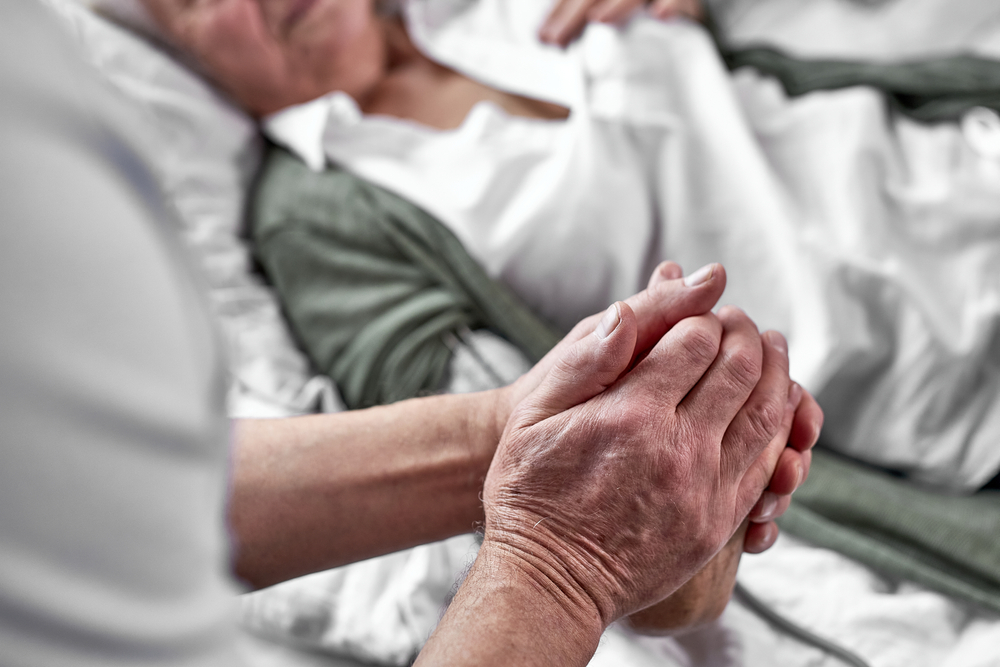
Death is one of the few experiences every person will eventually face, yet it remains shrouded in mystery. Many of us wonder what really happens in the moments right before you die—not just physically, but mentally and emotionally. Understanding this process can help alleviate fears, foster meaningful conversations, and even inform important end-of-life decisions. It’s not just a medical question; it’s deeply personal and practical, touching families, caregivers, and anyone planning for the future. By exploring what really happens, we can approach the end of life with greater compassion and clarity.
1. The Body Slows Down
In the moments right before you die, your body’s systems start shutting down. The heart beats less efficiently, breathing becomes shallow or irregular, and blood pressure drops. These changes often happen gradually, especially if death is due to illness or old age. You may notice coolness in the hands and feet as circulation slows. Skin may appear mottled or bluish. These signs are not painful but simply part of the body’s natural process as it prepares for the end.
For caregivers and loved ones, recognizing these physical changes can help you know when death is near. Understanding what really happens in the moments right before you die can also help families prepare emotionally and logistically. It’s a time to offer comfort, presence, and support.
2. Changes in Consciousness
As the body slows, consciousness often shifts. People may become less responsive, slipping in and out of awareness. Some become drowsy and sleep more, while others might have moments of confusion or agitation. It’s common for dying individuals to have vivid dreams or talk to people who aren’t present—sometimes loved ones who have already died.
This altered state isn’t necessarily distressing. Many hospice workers and researchers believe it’s a gentle transition, allowing the mind to let go. For family, it’s important to speak calmly and offer reassurance, even if the person doesn’t seem fully aware. The sense of hearing is thought to be the last to go, so soothing words and familiar voices can still bring comfort in these final moments.
3. Emotional and Spiritual Experiences
One of the most profound aspects of what truly happens in the moments immediately preceding death involves emotions and spirituality. People may experience a sense of peace, acceptance, or even euphoria. Others might feel fear or sadness, especially if death comes suddenly.
For many, these moments offer a chance for reflection or connection—sometimes described as “life review,” where memories and important relationships come to mind. Some report seeing a bright light, feeling a presence, or sensing a transition out of the body. While science can’t fully explain these experiences, they are widely reported and can be deeply meaningful to the dying person and their loved ones.
If you’re supporting someone at the end of life, creating a calm, loving environment can help ease this transition. It might mean playing favorite music, sharing affirming words, or simply sitting quietly together.
4. The Final Breath
Physically, the most noticeable sign that death is imminent is a change in breathing. This often becomes irregular, with long pauses followed by shallow breaths—a pattern known as Cheyne-Stokes respiration. Sometimes there’s a rattling sound, which is just air moving through relaxed airways. While it can be unsettling to hear, it’s not typically uncomfortable for the dying person.
Eventually, breathing stops altogether. The heart follows soon after. These final moments are usually peaceful, especially when pain and symptoms are well managed. Families often take comfort in being present, holding a hand, or saying goodbye. Understanding what really happens in the moments right before you die can make this time less frightening, focusing attention on comfort and connection instead of fear.
5. What Science and Near-Death Experiences Say
There’s growing interest in what really happens in the moments right before you die from both scientific and personal perspectives. Medical studies show that the brain can remain briefly active after the heart stops, possibly explaining reports of awareness or vivid experiences at the threshold of death. Some people who survive cardiac arrest recall sensations of floating, seeing lights, or feeling detached from their bodies. While these accounts are not universal, they are common enough to spark ongoing research.
While there is still much to learn, these findings suggest that the mind’s final moments can be surprisingly rich and complex. Whether these experiences are biological or something more remains an open question, but they add another layer to our understanding of what really happens in the moments right before you die.
Practical Takeaways for Life and Legacy
Thinking about what really happens in the moments right before you die isn’t just for the curious or the fearful. It’s a practical step for anyone planning for the future, caring for aging parents, or wanting to support a loved one at the end of life. Knowing the signs, understanding the physical, mental, and emotional shifts, and preparing for these moments can help everyone involved feel more at ease.
If you want to ensure your wishes are respected, consider creating an advance directive or talking with your family about end-of-life care. Facing the end with knowledge and compassion can transform fear into something more manageable—a final chapter marked by dignity, comfort, and love.
How do you feel about what really happens in the moments right before you die? Share your thoughts or experiences in the comments below.
What to Read Next…
- 7 End Of Life Money Choices That Wreck Families
- 11 Ways Your Last Words Can Be Legally Misinterpreted
- What Happens To Your Debt When You Die Morbid But Important
- 6 Critical Documents Your Family Must Be Able To Find If You Die Suddenly
- 10 Personal Items You Must Deal With Before You Pass Away To Protect Your Family
The post What Really Happens in the Moments Right Before You Die appeared first on Clever Dude Personal Finance & Money.







